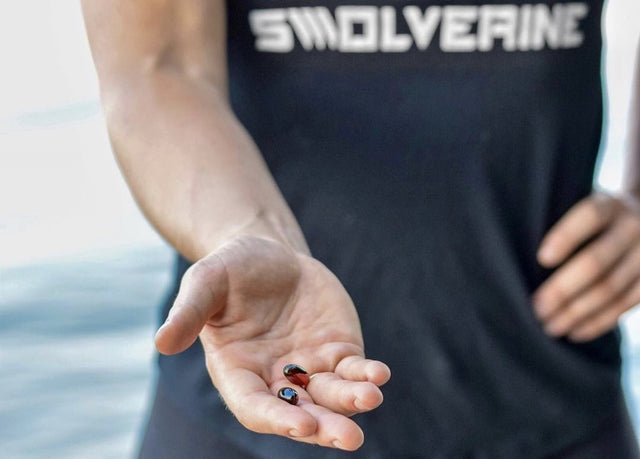Study Design: Clinical Trial
Author Information
International Journal of Pharmacology, Phytochemistry and Ethnomedicine Online: 2015-12-02 ISSN: 2297-6922, Vol. 1, pp 20-22
All American Pharmaceutical Billings MT. Golini, J PhD.
Background
Kre-Alkalyn is a sports performance product that has been shown to provide a more stable structure to provide better creatine bioavailability than traditional creatine. The objective of this study was to investigate the improved creatine stability and pH profile of creatine with a buffering agent, Kre-Alkalyn, to further prevent the breakdown to the by-product of creatine metabolism, creatinine. Creatinine is purported to cause side effects such as stomach bloating and cramping. This was achieved through real time and accelerated time testing.
Methods
Through a stability testing procedure, Kre-Alkalyn powder was assayed for purity. 1.5 grams of Kre-Alkalyn powder was added to 4 oz of water and stored in lab for real time testing, and 1.5 grams of Kre-Alkalyn powder was added to 4 oz of water and put into incubator for accelerated testing. Both groups were tested at 30-day segments. Creatine and Kre-Alkalyn solutions were tested for changes in pH using a standard calibrated pH meter (ATLAS Bioscience; Tuscon, AZ). Three solutions were added to Kre-Alkalyn; hydrochloric acid (0.1 ml – 1M), sodium hydrogencarbonate/sodium carbonate (11.7 / 13.7 (ml – 1M)), and ethanolamine/ethanolamine hydrochloride (18.6 / 6.3 (ml – 1M)).
Results
The shelf stability of Kre-Alkalyn is conserved during both real-time and accelerated testing of creatine to creatinine conversion. Only during the accelerated stability test was there a small indication of creatine to creatinine conversion at 0.055 after 150 days, the equivalent to 5 years of real time, and 0.1% after 180 days, the equivalent to 6 years of real-time. It has been established that creatine breakdown is a function of pH. Kre-Alkalyn maintained a significantly higher pH than traditional creatine, in three separate reagents tested. A slow decline from highly basic pH (12) to neutral pH (7) after 45 minutes with Kre-Alkalyn in a 0.1 M HCl solution was observed. Even with the addition of hydrogencarbonate/sodium carbonate or ethanolamine/ethanolamine hydrochloride, commonly used biopharmaceutical buffers, which increased the rate of pH reduction, Kre-Alkalyn maintained higher pH levels than traditional creatine.
Conclusions
In this report, Kre-Alkalyn was assessed for soluble stability during both a real-time (1 year) and accelerated (6 year) trial. During these trials, only a small fraction of Kre-Alkalyn was converted into creatinine at the end of the accelerated 6-year trial. A much higher rate of degradation was observed with traditional creatine in similar trials. The findings of this report suggest that Kre-Alkalyn maintains its stability when mixed with water over a significant time frame and should provide a sustained basic pH in the acidic environment of the stomach necessary for reducing creatine to creatinine conversion. Thus, based on the stability profiles presented, Kre-Alkalyn should provide superior availability in vivo to traditional creatine commonly used in sports supplements.















